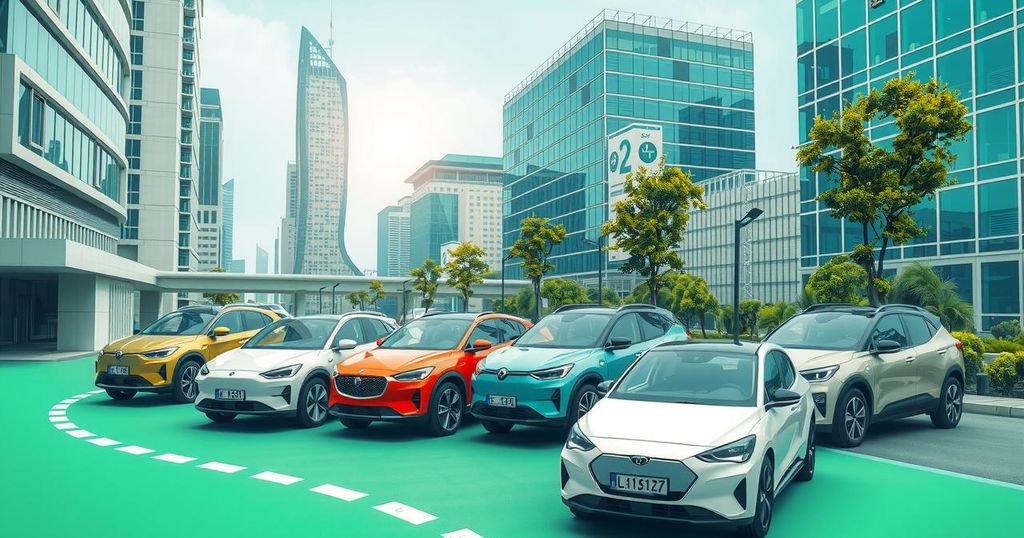Foreign Auto Brands Seize Growth Opportunities in China’s NEV Sector

Foreign auto brands are leveraging growth in China’s NEV sector through increased investments, collaborations, and tailored vehicle models. Industry leaders like Audi and BMW are adapting to consumer trends and benefiting from supportive government policies. The evolving market dynamics showcase opportunities for innovation and partnership in the context of China’s leading position in the global NEV landscape.
Foreign auto brands are increasingly capitalizing on growth prospects within China’s new energy vehicle (NEV) sector through heightened investments and expanded market presence. This transition from traditional vehicles to NEVs is a significant opportunity for global players, as emphasized by Helmut Stettner, CEO of Audi FAW NEV Co., Ltd., who noted the rapid acceleration towards electric mobility in China, especially in the premium market. He stated that despite existing challenges, Audi recognizes substantial growth potential and is committed to participating in this transition.
In the last months, major developments have taken place. In March, BMW collaborated with Huawei to create a specialized digital ecosystem for Chinese consumers. Concurrently, Tesla achieved a milestone by exporting its initial batch of Megapack energy-storage batteries from its Shanghai factory, the first outside the U.S. This highlights the opportunity presented by China’s advancing NEV market, as stated by Gao Yuning from Tsinghua University, who recognized the efficient business environment and advanced industrial supply chains.
By 2024, China’s NEV production and sales surpassed 12 million units, reinforcing its dominant global market position. The country stands as the largest supplier of battery materials and power batteries, accounting for 70% and 60% of the global supply, respectively. The Chinese government has bolstered this sector with favorable policies, such as purchase subsidies and supporting infrastructure, which have all contributed to the rapid uptake of NEVs among consumers.
Further data relayed by the Ministry of Commerce indicated that more than 60% of vehicles purchased under the auto replacement subsidy in 2024 were NEVs, with foreign brands making up over 35% of these sales. This is indicative of Chinese consumers’ openness to new innovations and technologies, providing foreign automobile manufacturers with valuable opportunities in the evolving market landscape.
Changing consumer preferences are also noteworthy as customers increasingly prioritize advanced features such as smart cockpits and automatic parking rather than just classic specifications such as range and cost performance. Furthermore, foreign manufacturers are focusing on developing models tailored specifically for Chinese customers, integrating smart driving, car networking, and environmentally friendly solutions to resonate with local consumers.
Volkswagen Group exemplifies this trend with their recent strategic agreement with First Automobile Works (FAW), launching 11 new models beginning in 2026, all designed for the Chinese market. Ralf Brandstaetter, the CEO of Volkswagen Group China, underscored this partnership as foundational to their success, emphasizing their commitment to adapting to customer needs through an expansive NEV portfolio.
In summary, foreign auto brands are actively engaging in the thriving NEV sector in China, spearheaded by significant collaborations and tailored vehicle offerings. They are benefitting from favorable government policies, a robust industrial supply chain, and evolving consumer demands. The future success of these brands lies in their ability to innovate and adapt their products to meet the preferences of the Chinese market. Overall, this trend illustrates the profound impact of the NEV transition on global automotive strategies.
Original Source: www.shine.cn




